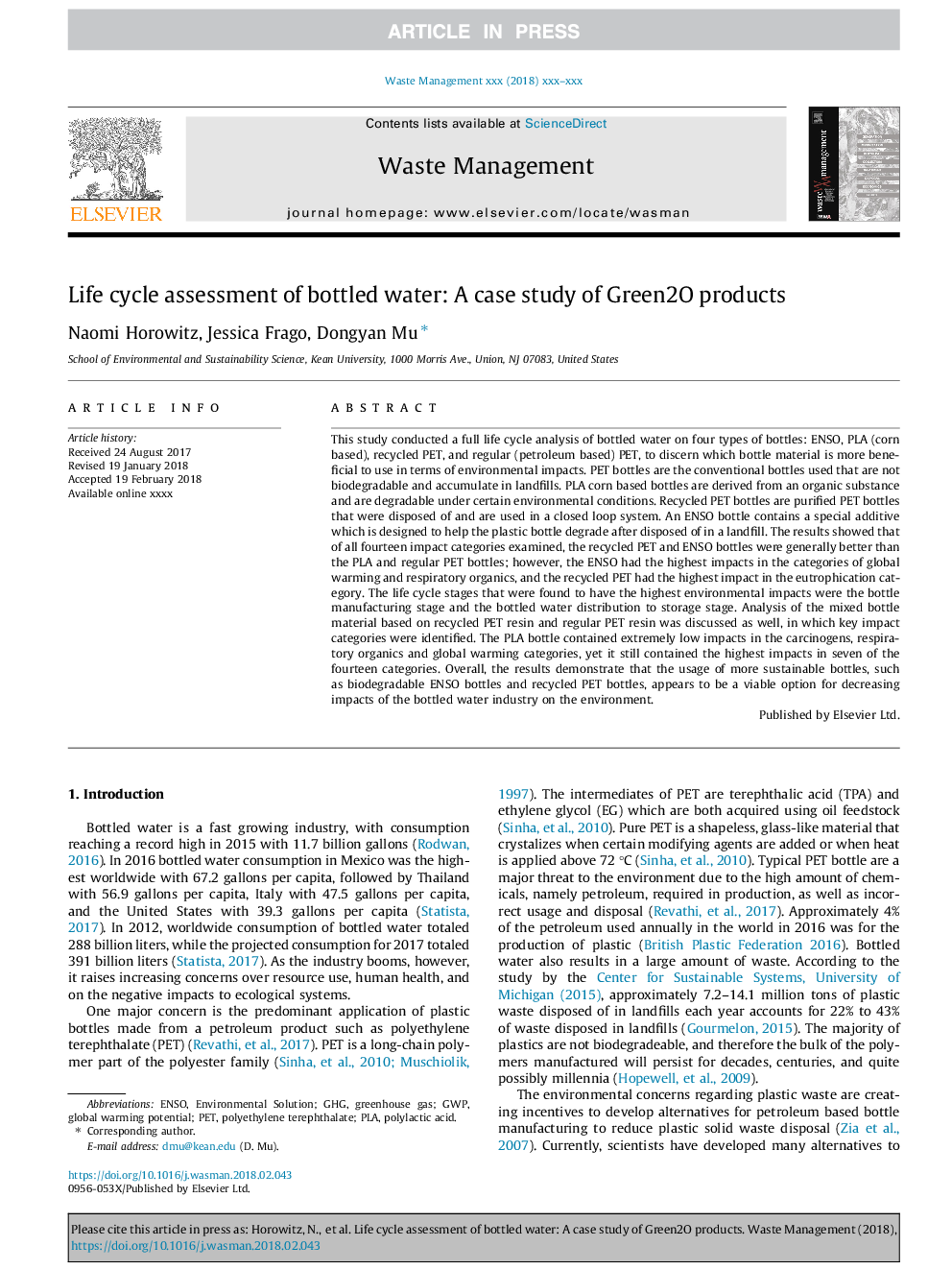| Article ID | Journal | Published Year | Pages | File Type |
|---|---|---|---|---|
| 8869765 | Waste Management | 2018 | 10 Pages |
Abstract
This study conducted a full life cycle analysis of bottled water on four types of bottles: ENSO, PLA (corn based), recycled PET, and regular (petroleum based) PET, to discern which bottle material is more beneficial to use in terms of environmental impacts. PET bottles are the conventional bottles used that are not biodegradable and accumulate in landfills. PLA corn based bottles are derived from an organic substance and are degradable under certain environmental conditions. Recycled PET bottles are purified PET bottles that were disposed of and are used in a closed loop system. An ENSO bottle contains a special additive which is designed to help the plastic bottle degrade after disposed of in a landfill. The results showed that of all fourteen impact categories examined, the recycled PET and ENSO bottles were generally better than the PLA and regular PET bottles; however, the ENSO had the highest impacts in the categories of global warming and respiratory organics, and the recycled PET had the highest impact in the eutrophication category. The life cycle stages that were found to have the highest environmental impacts were the bottle manufacturing stage and the bottled water distribution to storage stage. Analysis of the mixed bottle material based on recycled PET resin and regular PET resin was discussed as well, in which key impact categories were identified. The PLA bottle contained extremely low impacts in the carcinogens, respiratory organics and global warming categories, yet it still contained the highest impacts in seven of the fourteen categories. Overall, the results demonstrate that the usage of more sustainable bottles, such as biodegradable ENSO bottles and recycled PET bottles, appears to be a viable option for decreasing impacts of the bottled water industry on the environment.
Keywords
Related Topics
Physical Sciences and Engineering
Earth and Planetary Sciences
Geotechnical Engineering and Engineering Geology
Authors
Naomi Horowitz, Jessica Frago, Dongyan Mu,
